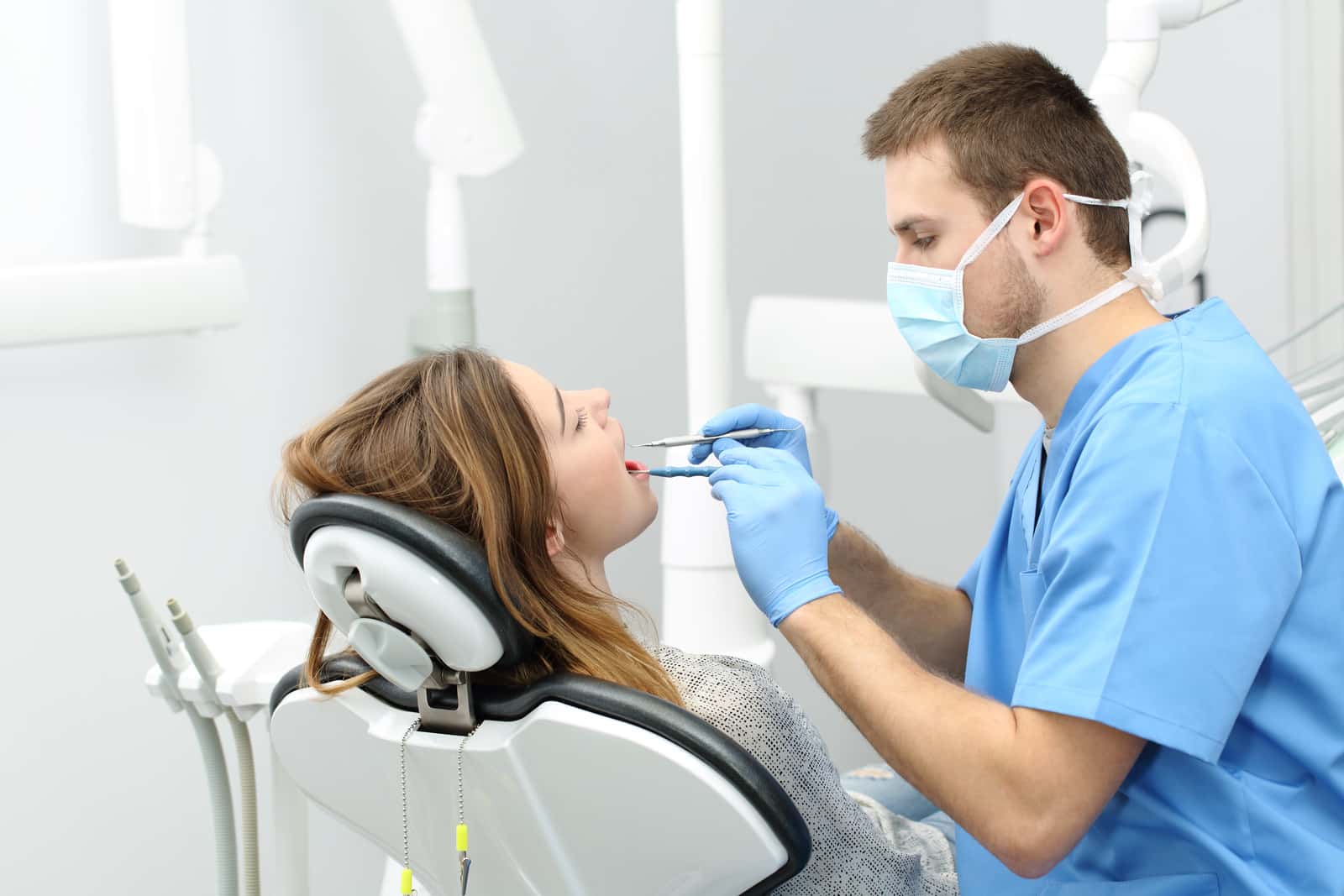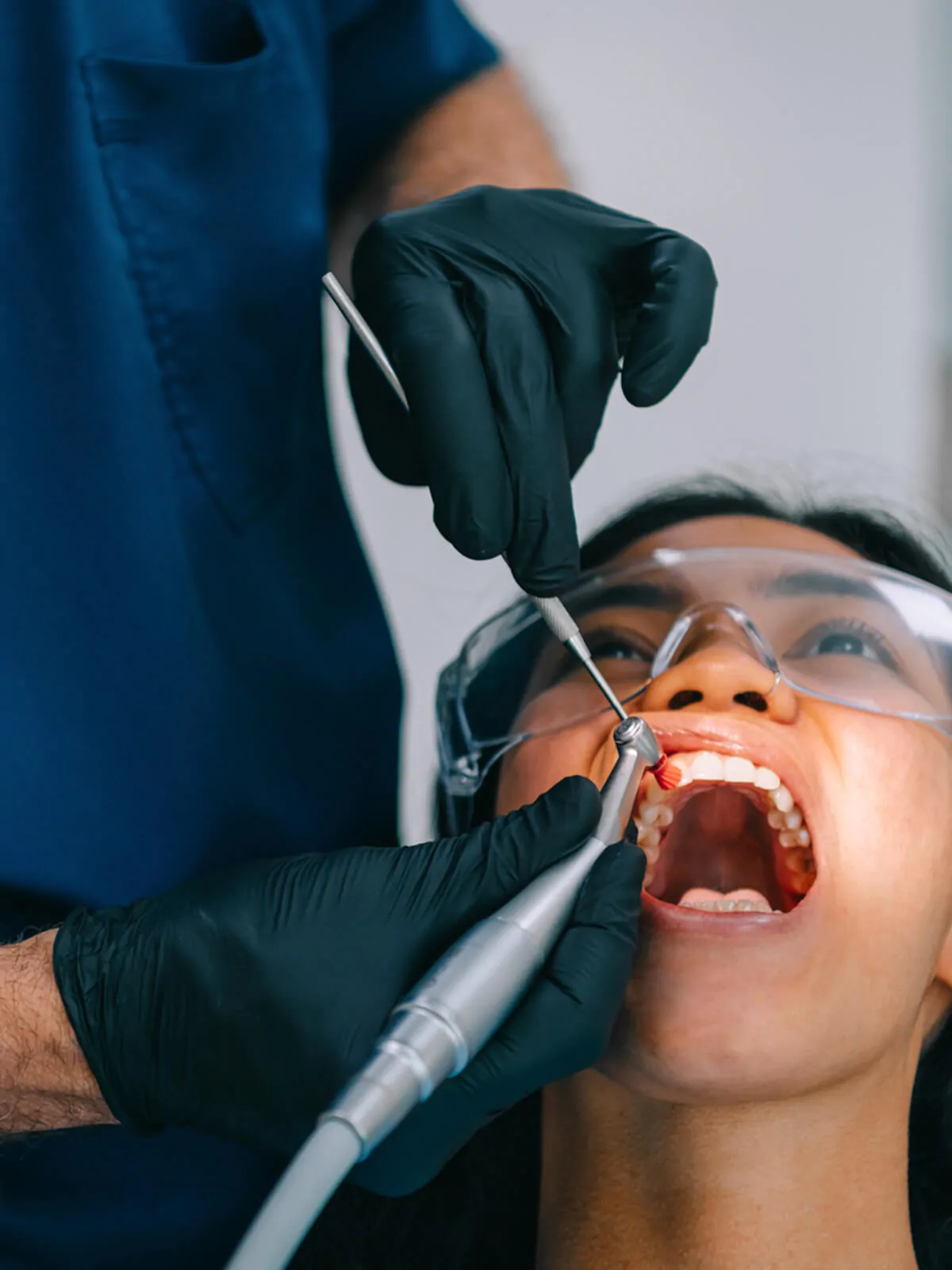Discover the Top Dentist Eugene Oregon Residents Trust for Exceptional Treatment
Discover the Top Dentist Eugene Oregon Residents Trust for Exceptional Treatment
Blog Article
An Overview to Common Dental Conditions That Require a Dental professional's Treatment
Understanding the series of oral problems that demand expert treatment is vital for keeping optimum dental wellness. Toothaches, for example, can be symptomatic of severe problems such as cavities, broken teeth, or abscesses, each requiring certain treatments like dental fillings or root canals. Periodontal condition, from the early phases of gingivitis to a lot more extreme periodontitis, highlights the value of regular oral exams and cleansings. Moreover, affected knowledge teeth and jaw problems can introduce substantial pain and problems. Making certain prompt brows through to the dental expert can alleviate these issues efficiently, however what specifically are the treatments and indicators included?
Toothaches
Toothaches are a typical oral problem that can range from moderate pain to severe pain, typically suggesting a hidden concern that requires expert attention. This discomfort can stem from a variety of sources, including tooth decays, broken or fractured teeth, and oral abscesses. Each of these conditions presents substantial dangers if left neglected, potentially leading to much more serious difficulties.
Oral dental caries, also recognized as decays, are caused by the build-up of plaque that wears down tooth enamel, leading to holes or pits in the impacted teeth. Abscesses are excruciating infections at the root of a tooth or in between the gum and a tooth, generally resulting from severe degeneration or neglected cavities.
Reliable treatment of toothaches entails dealing with the origin. This might consist of fillings for cavities, crowns for fractured teeth, or origin canals and antibiotics for abscesses. Early treatment by an oral specialist can avoid more wear and tear and ease pain, ensuring ideal dental health and wellness.
Gum Illness
Gum disease, a common yet commonly ignored dental problem, manifests through swelling and infection of the gums and sustaining tissues. This problem primarily happens in 2 phases: gingivitis and periodontitis. Gingivitis, the milder form, presents with symptoms such as red, swollen gums that may bleed conveniently throughout brushing or flossing. If left untreated, gingivitis can progress to periodontitis, a much more serious kind identified by the destruction of the supporting bone and connective tissue, eventually resulting in tooth loss.
The primary reason of gum disease is bacterial plaque, a sticky, anemic film that regularly develops on teeth. Poor dental hygiene, smoking cigarettes, hereditary proneness, and certain medical conditions, such as diabetes, can aggravate the danger of creating gum tissue condition. Normal dental exams are vital for early discovery and management of this problem.
Treatment for gum tissue condition varies from professional dental cleansing and scaling to advanced procedures like origin planing and periodontal surgical procedure, relying on the seriousness. Maintaining great oral health practices, consisting of cleaning two times daily, flossing, and using an antiseptic mouth wash, can significantly decrease the danger of gum tissue disease and advertise much healthier periodontals.
Tooth Cavities
Dental caries, also known as cavities, are a typical oral problem defined by the destruction of tooth enamel due to acid-producing microorganisms in the mouth. These bacteria prosper on sugars and starches from food and drinks, creating acids that progressively erode the enamel, bring about cavity development.
Early-stage cavities may disappoint symptoms, but as they progress, they can cause toothache, sensitivity to chilly or warm, visible openings or pits in the teeth, and discoloration. If left unattended, dental caries can penetrate much deeper layers of the tooth, possibly causing extreme pain, infection, and even tooth loss.
Preventing tooth cavities entails a combination of good address dental hygiene methods and dietary behaviors. Regular cleaning with fluoride tooth paste, flossing, and routine oral examinations are essential. Dentists might likewise suggest additional safety nets, such as fluoride therapies and dental sealers, to secure teeth from degeneration.
Treatment for tooth cavities relies on their intensity. Small tooth cavities can be resolved with dental fillings, which bring back the tooth's structure. Advanced cases may call for crowns or perhaps origin canal therapy if the degeneration has actually gotten to the tooth's pulp. Timely intervention by a dentist is important to stop issues and preserve general oral health and wellness.

Impacted Knowledge Teeth
Affected knowledge teeth are a common dental issue that happens when the third molars, frequently referred to as knowledge teeth, fall short to totally emerge or line up correctly within the mouth. This condition usually results from inadequate room in the jaw or an uncommon development angle of the teeth. Affected wisdom teeth can bring about a range of complications, consisting of infection, discomfort, and damages to adjacent teeth.
When knowledge teeth come to be affected, they are usually partially emerged or remain completely below the periodontal line. This partial eruption can produce a pathway for microorganisms to go into the periodontals, bring about infections that show up as swelling, discomfort, and even fever. In addition, influenced knowledge teeth can apply stress on bordering teeth, possibly causing crowding or moving.
A thorough oral exam, generally entailing X-rays, is vital for detecting impacted knowledge teeth. Therapy usually entails surgical extraction, done by an oral specialist. The procedure intends to relieve pain and protect against further issues, such as cysts or damage to bordering bone frameworks. Post-operative care is essential to make sure proper recovery and decrease the risk of infection. Normal oral examinations are advisable to keep an eye on the condition and preserve dental wellness.
Jaw Conditions
Jaw disorders, jointly referred to as temporomandibular joint (TMJ) conditions, incorporate a variety of problems that influence the jaw joint and bordering muscular tissues. These disorders can materialize through symptoms such as pain or inflammation in the jaw, difficulty eating, a clicking or standing out audio when closing the mouth or opening up, and even persistent headaches. TMJ disorders can occur from different factors, including arthritis, jaw injury, or regular actions like teeth grinding or jaw clenching.
Medical diagnosis of TMJ problems normally entails a detailed evaluation by a dentist, including a health examination of the jaw, oral X-rays, and sometimes advanced imaging strategies like MRI or CT scans to assess the joint's problem. Treatment choices vary depending upon the extent of the disorder. Non-invasive strategies such as physical therapy, oral splints, and medicines aimed at lowering swelling and discomfort are commonly first-line therapies. In more serious instances, medical interventions might be needed to fix structural problems within the joint.
Early intervention by an oral specialist is critical to protect against the development of TMJ conditions and to maintain general oral wellness. People experiencing relentless jaw discomfort or dysfunction should seek prompt examination and Web Site treatment.
Verdict
Toothaches usually suggest underlying problems such as cavities, fractured teeth, or abscesses, requiring timely intervention. Influenced wisdom teeth and jaw my review here disorders also require professional focus to minimize discomfort and protect against additional issues.
Dental dental caries, additionally understood as cavities, are triggered by the build-up of plaque that deteriorates tooth enamel, leading to holes or pits in the affected teeth. Abscesses are unpleasant infections at the root of a tooth or in between a tooth and the gum tissue, typically resulting from severe decay or untreated tooth cavities.

Furthermore, influenced wisdom teeth can put in pressure on bordering teeth, possibly triggering crowding or changing.
Report this page